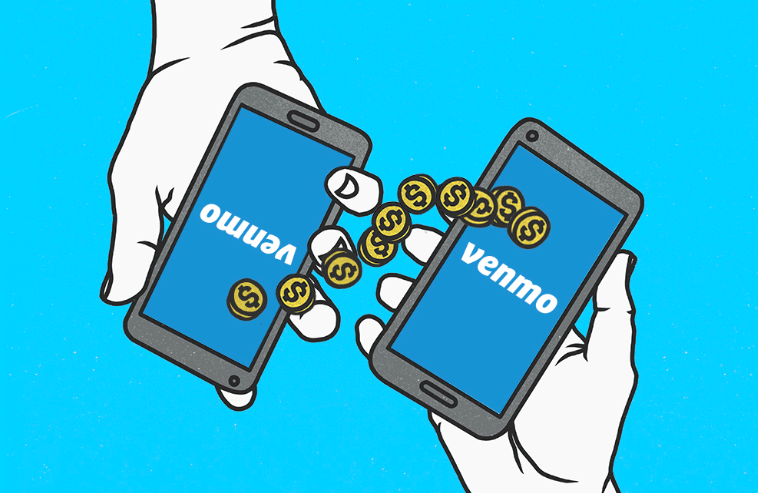When we hear the word “free,” we often want to grab the opportunity and list out our experiences if it was worth the attention. Well! To begin with, something similar had happened on Venmo at the first stage of its launch. Venmo had been introduced as a peer-to-peer money transfer mobile application in 2009. But, it wasn’t simply a program where you could request from or send funds to your friends, family, and colleagues. Indeed, it also had a touch of socializing. That’s right! On the one hand, where Venmo is delivering its millions of users with such convenience, the major question raised by business intellectuals is, “How does Venmo make money?”

Although, when you research online, Venmo has no direct source of revenue. The reason being, Venmo does not charge its users an additional cost at any point of transactions. Thus, whether you sign-up to Venmo, link your bank account, receive or request money from your friends and contacts, you will get all these services free of cost. This is true for users who barely use Venmo; however, it is still in their smartphone; the organization does not charge for the same. Hence, we can say that Venmo is a free wallet that remains round-o-clock available in the US’s pockets. So, is it worth it?
Table of Contents
Venmo – Peer2Peer Money Transfer App
The answer is yes. Venmo is totally worth it. In the past few years, Venmo’s competitors in the market have obtained some leverage. Competitors like Google Pay, SnapCash, and Zelle. But, one thing that all these competitors do not offer is – freedom to be social. Hence, without a doubt, Venmo still is the no.1 fast money transfer App. Yet, if Venmo is so prominent and has been acquired by PayPal for over $800 million, it must have a hidden income source. Well! You have guessed right – Venmo does make money. Let’s begin to connect the dots:
How does Venmo make money?
How does Venmo make money – this query is easy-to-build in your mind under two conditions: You are not a retailer/merchant on Venmo, and you do not proceed to transfer money using credit cards. The reason being, Venmo charges its customers/users under the two above-mentioned conditions only. To see how much does Venmo charge, here’s a brief for you:
Credit Card fees
Have you ever tried to pay money to your friends on Venmo via credit card? Well! If not, then you must not know this. But, in fact, Venmo charges a 3% standard transaction fee. Without a doubt, this 3% fee counted as revenue for Venmo. However, according to a report, there are several strong reasons behind Venmo charging fees for a credit card based money transfer and not a debit card.

First, one of the most reasonable rationales behind rooting credit card fees is that users have been using credit cards for a long time. And unlike debit card users, credit card money is individually owned by the user. But, at the end of every month, the users must pay a credit card bill. Thus, in that case, the risk of financial instability and bankruptcy exists, even though at a negotiable level. Therefore, to play on the safe side of the ground, Venmo charges credit card users.
Note: In the event that you are adding money to your Venmo wallet using a credit card, you will be charged 3% standard fees in the first place. Later, if you make transactions using a Venmo wallet, there will be no additional fees.
Merchant fees
Do you know who enjoys a major-level profit out of Venmo? Well! It is not for general users. Indeed, merchants on Venmo enjoy the extensive benefits of Venmo. However, they are charged for the money they receive. For example, if you pay a merchant (restaurant owner or waiter) using Venmo, suppose $100. In that case, the merchant will be charged 3% of $100 as a merchant fee. Once again, Venmo has a perfect list of reasons to charge merchants.
To begin with, Merchants on Venmo enjoy indirect benefits such as a free promotion for their business and an increase in sales. How? Venmo is one of the first-ever peer-to-peer money transfer apps that allows its users to socialize in a unique way. For example, if your friend (who is also on Venmo) goes out with another friend for lunch at a restaurant. Further, this friend of yours pays through Venmo.
You can see this transaction in your Venmo social feed. And so do other friends. In that case, you will also be tempted to try out this restaurant. This way, merchants on Venmo get more and more customers. Thus, a 3% standard fee per transaction seems bearable to thousands of merchants on Venmo because the indirect benefits exist.
How much is Venmo worth?
In the past few years since 2002, PayPal and eBay had their acquisition in question. Now, PayPal is springing all its attention to Venmo – the fastest P2P money transfer app in the United States. Here’s a fun fact to begin with – Venmo is 2020 counted to have over 52 million active users. Not only this, but the volume of Venmo transfer increased from $29 billion to $102 billion within a span of 12 months only. Surprising, isn’t it? For the most part, the current annual growth rate of Venmo is 56%. Hence, PayPal ended up acquiring Venmo for $800 million. Here are some statistics to clarify you on how does Venmo makes money and how much?

- Total Venmo users in 2020: 52 Million
- Active users on Venmo in 2020: 26 million
- Total Annual Payment volume: $102 Million
- How much does Venmo make a year? Venmo’s Revenue/Income/Net worth: $420 Million
- Venmo’s current worth: $38 Billion
According to BusinessWire, a high-end financial platform informs – Venmo currently has over 2 Million merchants signed-up for business purposes. Meaning, Venmo makes money by charging these 2 million merchants a 3% standard fee over every Venmo transaction (money received from customers).
Hence, if you wonder how Venmo makes money even after being free, your answer is obvious. Venmo has its ways!
Is it bad to leave money in a Venmo wallet?
Since it has become clear that Venmo does charge its customers under a few conditions, users have concerns growing regarding the safety of their hard-earned money and leaving it in their Venmo wallet. To begin with, Venmo is a socializing peer-to-peer money transfer app. Hence, all your transactions are publicized entertainingly. Therefore, the risk of getting scammed is reasonable. Now that Venmo has given its users free to hide their social feed transactions, is Venmo safe now?
Technically speaking – like any other customer-based mobile application, Venmo also has an API (or what you call – Application Program Interface). Thus, in order to protect its customers’ sensitive information such as – bank account number, debit card number, name on the card, pin code, amount of money transferred, username, and password – Venmo takes the initiative to encrypt it using safe data encryption protocols. However, according to top-notch financial advisors and business intellectuals, Venmo requires to enhance its platform’s safety.

Thus, if you choose to leave too much money in a Venmo wallet, the risk of cybernetic increases, therefore, it is recommendable to avoid keeping a countable balance in a Venmo wallet because of the fear of those who are preying on you over the net.
Scams on Venmo – how does Venmo make money? Does Venmo steal money?
In the past few years, Venmo has been in talks for scams rarely. However, if you wonder if Venmo makes money through stealing and scamming, it is an unworthy statement. Without a doubt, scammers find their way to steal money even on Venmo – a well-built peer-to-peer money transferring app. Thus, here are top conditions under which the possibility of a Venmo scam exist:
- If a stranger asks you to revert Venmo funds (stating that he has sent you funds by mistake), it is recommendable to report such Venmo users. The reason being, there is a possibility that the respective Venmo user has sent you funds using stolen credit cards. Thus, if you use the funds to send the money back, you will be on the culprit list.
- Furthermore, if a stranger offers to pay for your goods through Venmo, do not accept such offers.
- Similarly, if a stranger sends you a link out of nowhere, do not click on such links. The reason being, it may damage your personal data. And the stranger gets access to your bank information.
- Apart from this, it is highly recommendable to lock your Venmo app. The reason being, some scammers out there reach out in public and ask for help. (such as making a phone call). They end up using your Venmo money and transfer funds to their scamming accounts.
- At last, Venmo alerts its users to quickly report a stranger who personally messages you on Venmo or offers to make a generous payment on your behalf.
Epilogue
Hence, if you ask how does Venmo makes money? The answer is – credit card fees and merchant fees. Apart from these two, Venmo does not interrupt its users with any additional fees. Therefore, stay alert and report if you are being charged for transactions that you did not proceed with in the first place. For further details and concerns, reach out to us!



